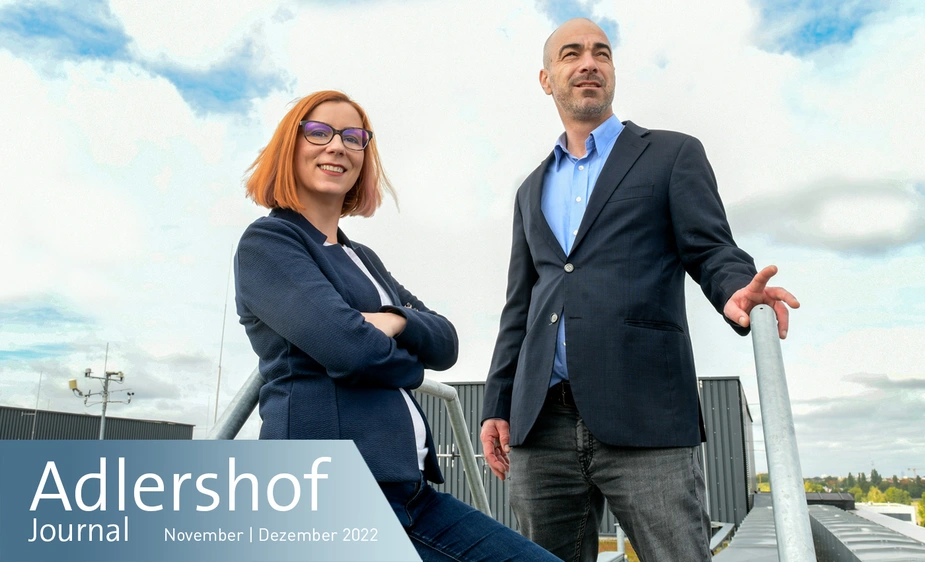Our roof
RoofUz creates living space through sustainable rooftop extensions
The start-up team of RoofUz wants to create additional living space in cities without sealing more surfaces. It does so through sustainable extensions of existing rooftops. In this way, 70,000 residential units could be created in Berlin alone.
“Our orientation is the simplicity of Playmobil elements,” explains Kilian Eckle, founder of RoofUz. “We don’t build variably brick by brick, which is prone to errors but use serially manufactured wood panel modules. This saves time, costs, and resources – and by that, we don’t just mean materials but also skilled workers, of which much fewer are needed when using wood frame construction.” His long-standing experience in construction and skilled trades is what drives Eckle, who has a degree in business administration, to work for more digitisation, sustainability, and networking. “Many processes are ineffective, the communication between the construction site and the office is far from ideal, data are often not consistently useable.” Take civil engineering as an example: In the past, there was often a lack of tools for archiving valuable documentation material. When photos and videos go lost, it might be necessary to dig up the ground again in order to assess a situation. A serial founder and “pusher”, as he says himself, who has previously worked supporting Würth, a worldwide construction wholesaler, with software development, Eckle is passionately committed to making the industry future-proof. He also initiated the founding of the Bundesverband Digitales Bauwesen (BDBau), a federal association for digital construction, which he sees as an intermediary and a matchmaker between construction start-ups, policymakers, and researchers. “It also gives us perfect insights into the innovative developments in construction,” says Kilian Eckle.
RoofUZ, Eckle and his five-strong team, who come from skilled trades, architecture, design, and digitalisation, are being supported by the Adlershof Founder’s Lab since early this year. The idea to use the module design for rooftop extensions and create new living space came to Eckle through his cousin, Max Salzberger, who manufactures entire wooden houses using CNC (computerised numerical control) machines. In order to be able to carry out serial renovations, RoofUz is now developing a kind of toolbox that is being perfected for use in roof construction. The start-up team’s mission is to make rooftop extensions with wood more socially accepted. In 2022, building with wood is still uncharted territory, even for construction professionals.
The founders are currently looking for uninhabited roofs and their owners for pilot projects. There are already concrete offers and contacts with housing companies and large construction companies. However, the dynamism has been slowed down somewhat by the federal government’s reform of state funding for renovations. “Nobody builds without state subsidies,” says Eckle, hopeful for a positive development. The ideas for a “healthy” and future-oriented remaking of the city are overflowing: “Modules for wood frame construction can be used in other ways in the future. Cities must become more liveable and greener, we will grow more food, and have fewer cars.” But, for now, it’s all about RoofUz: “When everyone does what they do best and also knows when they are needed and where they are needed, we can build a roof together.”
Peggy Mory for Adlershof Journal
